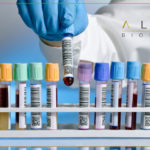Crohn’s and Colitis Awareness Week
The first week of December is Crohn’s and Ulcerative Colitis Awareness Week. The annual observation focuses on shedding light on the different challenges faced by patients who suffer from these chronic illnesses.
What is Inflammatory Bowel Disease (IBD)?
Inflammatory Bowel Disease (IBD) represents several intestinal disorders, namely Crohn’s Disease and Ulcerative Colitis, that can cause prolonged inflammation of the gastrointestinal (GI) tract. Over time, as a result of the chronic inflammation, tissues in the GI tract suffer permanent damage.
Both disorders can cause severe cramping, unintentional weight loss, debilitating discomfort, as well as other life-disrupting symptoms.

Crohn’s Disease
The disease most often affects the small intestine, although it can affect any part of the GI tract, which runs from the mouth to the anus.
The inflammation reaches through the multiple layers of the walls of the GI tract, and damaged areas appear in patches next to areas of healthy tissue.
Ulcerative Colitis
Unlike Crohn’s disease where any part of the GI tract can be affected, ulcerative colitis only affects the large intestine (colon) and rectum areas.
The chronic inflammation is present only in the innermost layer of the lining of the colon. The damaged areas usually start at the rectum and spread further into the colon in a continuous form (not patchy).
IBD In America
According to the Crohn’s and Colitis Foundation of America, an estimated 1.6 million Americans are living with IBD, and as many as 70,000 new cases of IBD are diagnosed every year in the United States.
Of the existing cases, approximately 780,000 Americans currently have Crohn’s disease, and 907,000 are living with ulcerative colitis.
Treatment and Management of IBD
Although IBD is a life-long illness without a cure, it is possible to successfully manage its symptoms through medical treatments.
Medical treatments for ulcerative colitis and Crohn’s disease have two main goals:
- Achieving Remission
- Maintaining Remission
Dietary changes and medications are typically the first lines of treatment for Crohn’s disease and ulcerative colitis. Currently, there are several types of drugs that help control inflammation in the digestive tract. Of these medications, biologics are the newest and can potentially be the most beneficial.
Biologics are laboratory engineered antibodies designed to target specific proteins in the body, which are known to cause inflammation. Due to its precisely targeted mechanism, biologic therapies provide a distinct advantage in the treatment of IBD.
More traditional medicines like corticosteroids can affect the whole body and may produce significant adverse effects. On the contrary, biologic agents are more selective and only target particular proteins known to be involved in the inflammatory processes of IBD.
There are several biologic therapies currently available on the market. Physicians evaluate each patient and determine the most effective biologic therapy. Close monitoring will allow doctors to adjust dosing and the frequency of the treatments.
Patients and physicians can work together to create a personalized management protocol which may include dietary and lifestyle changes as well as biologic therapies.
Altus Infusion helps private practices set up and manage their biologic infusion suites. We take care of every detail:
- In-Office Biologic Suite Setup
- Staffing
- Purchasing
- Management of Inventory
- Billing and Reimbursement
To find out more about how we can help your practice expand its services to offer in-office biologic treatments, contact us at info@altusbiologics.com.






